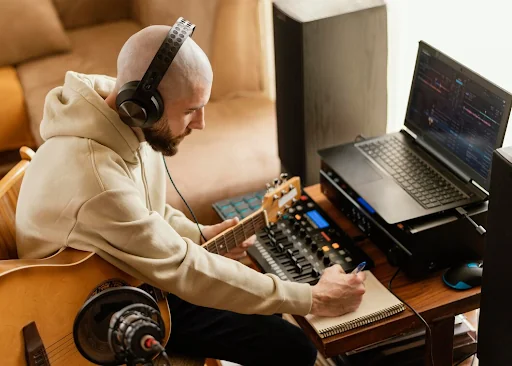The evolution of artificial intelligence has sparked revolutionary changes across creative industries. Music composition, once exclusively a human domain, now sees AI systems like Human and AI Music Generator Mubert creating complex musical pieces that challenge our understanding of creativity. This technological advancement raises important questions about the future relationship between artificial intelligence and human composers in the musical landscape.
The Capabilities of AI Music Generation
Modern AI music systems analyze vast databases of compositions to learn patterns, structures, and stylistic elements that define different musical genres. These systems can generate original melodies, harmonies, and rhythmic patterns that sound surprisingly authentic. The sophistication of AI-composed music has reached levels where listeners often cannot distinguish between human and machine-created compositions in blind tests.
AI music generation offers several advantages that make it attractive for certain applications.
- Instantaneous creation of fully orchestrated pieces without human fatigue.
- Ability to produce unlimited variations on themes or styles.
- Customizable outputs that can adapt to specific emotional tones or structural requirements.
- Cost-effective production of background music for commercial applications.
- Accessibility for non-musicians who can now create music through intuitive interfaces.
These capabilities have made AI music generation increasingly popular in advertising, video games, and other media contexts where custom music is needed quickly and economically.
The Human Element in Music Composition
Despite technological advances, human composers bring unique qualities to music creation that AI currently struggles to replicate. Music has historically served as a profound medium for human expression and connection. When composers create music, they draw upon lived experiences, emotional depth, and cultural context that shape their artistic vision in ways that machines cannot authentically simulate.
The collaborative aspect of human music-making also adds dimensions that AI cannot fully capture. The subtle interplay between musicians, the spontaneous improvisations that emerge during performance, and the physical connection between performer and instrument all contribute to musical experiences that transcend mere sound arrangement. These human elements create musical narratives that resonate on deeper levels with audiences.
Finding Harmony Between Human and AI Composition
Rather than viewing AI as a replacement for human composers, many music professionals see the potential for complementary relationships. AI tools can serve as collaborative partners that help composers overcome creative blocks, explore new musical territories, or handle technical aspects of composition while humans focus on creative direction and emotional content.
The future of music composition likely involves a synthesis where:
- AI handles repetitive or technical aspects of composition, freeing human creativity.
- Composers use AI to explore musical ideas they might not have discovered independently.
- New hybrid musical forms emerge that leverage the strengths of both human intuition and computational power.
- AI serves as a democratizing force, making music creation accessible to broader populations.
- Human composers focus increasingly on aspects of music that machines cannot replicate.
This collaborative approach recognizes that while AI can create technically impressive compositions, the human elements of intention, meaning, and cultural context remain essential to music’s impact.
Conclusion
Whether AI can replace traditional composers misses the more nuanced reality emerging in today’s music landscape. While AI demonstrates remarkable capabilities in generating complex musical compositions, it currently lacks the lived experience, emotional depth, and cultural understanding human composers bring to their work. The most promising path forward appears to be integration rather than replacement — finding ways for AI and human creativity to complement each other, creating new possibilities for musical expression that neither could achieve alone.
WATCH TOP VIDEOS FROM NIGERIAN TRIBUNE TV
- Let’s Talk About SELF-AWARENESS
- Is Your Confidence Mistaken for Pride? Let’s talk about it
- Is Etiquette About Perfection…Or Just Not Being Rude?
- Top Psychologist Reveal 3 Signs You’re Struggling With Imposter Syndrome
- Do You Pick Up Work-Related Calls at Midnight or Never? Let’s Talk About Boundaries







